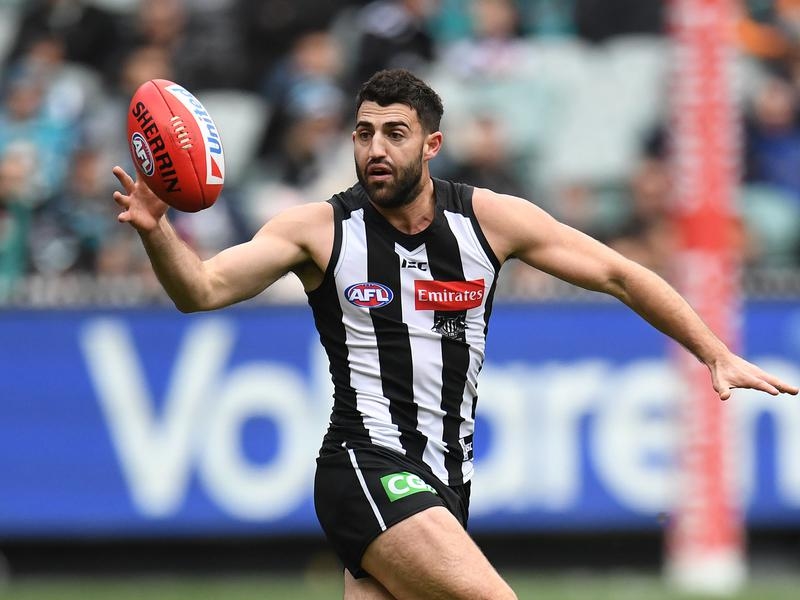
Collingwood forward Alex Fasolo says mental health struggles are hugely widespread across the AFL, which he says is ignorant to the challenges.
Fasolo has written about his battle with depression for the first time, detailing episodes where he would sit in his car and cry before and after training.
In a courageous and frank piece, Fasolo described days when he dreaded waking up, drank to excess, hid his true feelings from loved ones and saw death “as an escape fantasy”.
The 25-year-old’s description of his off-field woes is at odds with the image of the stereotypical AFL footballer.
But Fasolo suggested mental health battles were being fought by more players than were prepared to go public about it.
“Depression in footy, it’s hugely widespread,” he wrote on the Players Voice website.
“I’m not a psychiatrist, so I don’t know how it works, but I sort of feel like there’s a bit of a spectrum.
“Obviously, I got to a tipping point, but I think a lot of people have probably gone through it and dealt with it their way – either got professional help or just managed it and moved on – or some people are still battling it really badly.
“There’s just so much ignorance about it.
“People are, ‘How do you explain it, Faz? Explain it to me’, and I think the best way I’ve found to explain it is, ‘Being in moments that are very neutral but just feeling, innately, so sad for absolutely no reason’. And those moments were coming more and more.”
Fasolo, who took a short break from Collingwood this season, is one of a number of players to air their issues in an attempt to get help.
Western Bulldogs pair Tom Boyd and Travis Cloke both took a leave of absence on mental health grounds. Cloke returned to AFL action, while Boyd finished his season in the VFL.
Two-time premiership player Lance Franklin withdrew from the 2015 finals due to a serious mental health issue, returning in 2016.
High-profile Melbourne recruit Mitch Clark’s battle with depression preceded his retirement. He later joined Geelong but left the Cats and the AFL at age 28.
Barry Hall, Courtenay Dempsey, Chad Fletcher, Nathan Thompson and Wayne Schwass have all detailed their mental health challenges after retiring.
“My advice to anyone else in this situation: stop being in denial. Just go and see someone. And talk to your mates,” Fasolo said.
“As soon it came out in the open – I still didn’t want to talk to anyone about it, but at least things become more clear.
“Depression is a muddled, confused mind, basically, and as soon as you get some clarity and a little bit of information, half the battle’s won.”
Australian readers seeking support and information about depression can contact Lifeline on 13 11 14.
